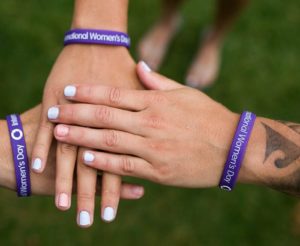International Women’s Day (IWD), which takes place annually on March 8, is the epicenter of the women’s rights movement, and has been since 1908, when over 15,000 women marched through the streets of New York City seeking shorter work hours, fair wages, and the right to vote. Don’t let the 1900s timestamp fool you—this was only just over 100 years ago. For some perspective here, the oldest living person as of today is 117 years old.
We’ve come a long way, but the fight for equality is far from over. Even today, in the 21st century, we are still facing huge issues when it comes to gender parity. And did you know that women are twice as likely to be a victim of domestic or sexual abuse compared to men? According to Statistics Canada’s General Social Survey on Victimization, women self-reported 553,000 sexual assaults in 2014, for example. And what about that wage gap? In 2018, female employees aged 25 to 54 earned, on average, $4.13 less per hour than their male counterparts. In other words, these women earned $0.87 for every dollar earned by men.

Sexual assault and the wage gap aren’t going to just disappear because we want them to. As long as these issues continue to persist in the society we’ve crafted, IWD is a must-have event. It would sound amazing to say “we don’t need it anymore,” but long as women are being treated unfairly somewhere in the world, we must continue with the movement.
IWD is usually celebrated by organized marches or protests, donate-a-thons (primarily for women’s shelters), and lots of posting on social media. All these actions help spread awareness for the movement and aid in the advocacy for equality that is so desperately needed. IWD is also celebrated and promoted differently in other countries.
Although the day is not a public holiday in some countries (such as Croatia, Romania, Bulgaria, and Chile), it’s still observed. On this day, men might offer flowers or small gifts to the women in their lives. In some countries it is observed as an equivalent of Mother’s Day, where children will also give small presents to their mothers and grandmothers.
No matter the country, IWD is a tribute to human rights. It is both a celebration of the achievements of women and a call to action. We cannot be complicit in times of injustice, and we cannot stop fighting until we find a way to change our world for the better. It sure seems like a daunting task, but small changes can have a huge ripple effect. Since the first widely attended protest in 1908, women have won the right to initiate divorce proceedings, to make individual decisions regarding pregnancy, and to own property. We still have a long way to go, but we sure have made significant changes so far.
International Women’s Day is a day dedicated to honouring the achievements of women throughout history and across the globe regardless of religion, sexuality, age, gender expression, or race. It’s a day to give a voice to the voiceless, and spread the catalyst for change. It does not belong to any single country, group, or organization—the day belongs to everyone who cares about human rights.
Until the day that equality is achieved, International Women’s Day is here to stay.
